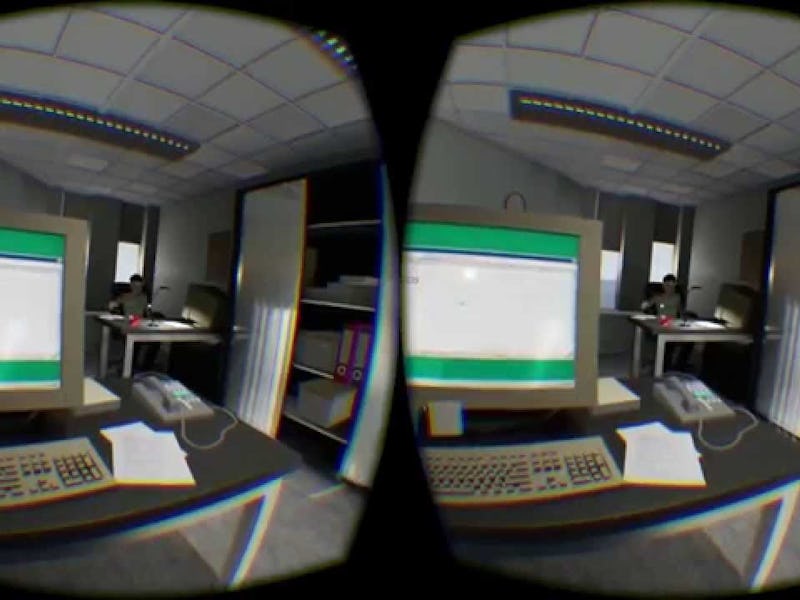The 9/11 Virtual Reality Experience Is a Sign of What's to Come
It's not necessarily offensive, but boy is it reductive!

A link to “08:46” climbed near the top of the Hacker News scroll this morning, triggering an inevitably reductive and thankfully brief conversation about the nature of art, offense, and history. “08:46” is a virtual reality project that puts users in the Twin Towers just prior to the impact of American Airlines Flight 11. The experience on offer is visceral and existential. Whether it’s thoughtful or merely provocative is up for debate — though there is nothing arch or inappropriately cinematic about the final product — but it isn’t getting traction on Twitter because it has substantively re-contextualized a meaningful historical event for everyone with an Oculus Rift. It’s getting traction because the elevator pitch is shocking. “08:46” won’t be the last VR project to ride that wave.
The barrier to entry for virtual reality is currently fairly high. This is interesting for two reasons: It currently puts a lot of pressure on creators to traffic in viscerally graspable concepts and it makes it hard to understand a longer term market. Because the retail Oculus has yet to arrive in a meaningful way, the discussion of “08:46” will remain largely abstract; most of the people that hear about it won’t actually experience it. It’s a memorable idea so people will discuss it and that is what currently passes for success in virtual reality.
The fact that most VR products are being consumed as abstractions will and is affecting the choices made by directors and producers. The easy solution to this problem is the one we see with “08:46,” the superimposition of first person structure on a familiar idea. The tagline for this sort of product is essential “What if you were there when…” Though the experiences will differ based on the end of that sentence (“on the Moon with Apollo 11,” “in the Coliseum at the height of the Roman Empire,” “raiding Osama Bin Laden’s compound”) what’s on offer really isn’t. Virtual reality as reality is creative square one. But how long will it take to get off of square one? How long will it take to create a VR experience about 9/11 that isn’t set on 9/11 or in the Twin Towers? If we’re going to start a countdown to subtlety, how much time should we put on the clock?
Probably a lot — several years at least.
One of the issues facing VR makers (the language around VR product creation is so tortured), is that immersion is brief. “Oculus Sickness” is a really physiological phenomenon with all the appeal of vomiting over a gunwale. VR is also — social functions aside — a lonely thing. Unless you’ve got a hell of a setup, your friends can’t watch you wander around in a virtual landscape in the same way they can watch you play Destiny. VR can and will build communities, but not locally, which will lead to a “pass the mask” culture right up until the point a consumer product because Apple TV-level becomes ubiquitous. Oh, and upstart media firms producing VR products aren’t going to have significant marketing budgets immediately.
The inevitable result of these compounding factors is that the VR indie stands aesthetically opposed to the Sundance indie. Whereas small-budget films traffic — or have traditionally trafficked — in more subtle ideas, small-budget VR will do the opposite.
Did the group of French artists behind “08:46” set out to offend people? Let’s give them the benefit of the doubt and say, no, they probably didn’t. But it’s not shocking that their process led in that direction and it’s not shocking that people were shocked.
Maybe masochism only leads to artistic excellence over time.